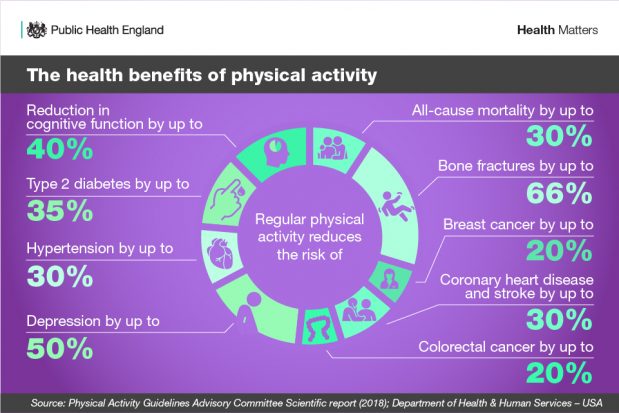Duncan Selbie’s Friday Message – 10 January 2020

Dear everyone,
Firstly, a very Happy New Year and I hope you had a chance to relax over the festive break.
Boots partnership
We know from consumer research that early January is the best time to support people when they want to make changes to aspects of their life. With that in mind PHE has collaborated with Boots, who are second to the NHS in being trusted by the public on health advice, to encourage one million people to take action to improve their health in an innovative new three-year partnership.
The collaboration began this month with the launch of an interactive Reboot Quiz , based on our ‘How Are You’ quiz, which asks customers simple questions to assess their behaviour on a range of topics including eating and drinking habits, smoking, daily stress and exercise. Customers can then choose to continue on their Reboot journey and receive personalised product and service recommendations. This is about putting public health expertise right in the hands of people looking to make a difference to their health.
Every Mind Matters
If you tuned in to any of the Football Association (FA) cup third round ties, or were at any of the games, last weekend you will have witnessed a historic first. All 32 fixtures were delayed by one minute to encourage football fans to Take A Minute’ to start taking action to look after their mental health and that of their family and friends as part of our Every Mind Matters programme.
Using football is a powerful way of engaging with men in particular who we know are less likely than women to seek help or take self-care actions for early signs of common mental health concerns. Do take a look at the new film narrated by His Royal Highness, The Duke of Cambridge, and featuring a number of high profile footballers that was played across stadiums, online and broadcasters, reaching millions of football fans across England. 1.3 million people have already completed a Mind Plan since the launch of Every Mind Matters 12 weeks ago and increasing each week.
The FA’s decision to sell broadcasting rights to gambling companies raises obvious concerns. PHE is currently reviewing the evidence about the health harms of gambling, which are wide ranging, and we shall be publishing our report in the Spring providing all sports governing bodies with a fresh opportunity to review their relationships with gambling.
Year of the Nurse and Midwife
The World Health Organisation (WHO) has declared 2020 as the year of the nurse and midwife in honour of the bicentenary of the birth of the founder of modern nursing, Florence Nightingale. A pioneer of public health, Florence Nightingale used hospital mortality data to identify that hygiene was a crucial factor in mortality rates among soldiers during the Crimean war, making her one of the earliest public health epidemiologists. She made an argument for a preventative approach to health care – an approach that is central to modern health care and nursing.
The year of the nurse and midwife presents an opportunity to celebrate the work done by nurses and midwives, particularly on the best start in life which is so crucial to improving the health of babies, children and their families to enable a happy healthy childhood and provide the foundations of good health into adult life. PHE employs and benefits from over 300 nurses and midwives across various roles; playing a vital role in shaping public health policy, health protection, supporting local delivery and providing professional leadership to health visitors and school nurses. I am delighted to add my recognition and thanks to each of them.
Flu detectors
PHE has one of the most advanced public health systems for influenza surveillance in the world. You can read our blog to learn more about how we track and act on flu each winter.
Health Matters

Health Matters infographic
And finally, on 23 January PHE and Sport England will be launching the next Health Matters edition focussing on how to promote physical activity for the prevention and management of long-term health conditions. One in three people have a long-term health condition and they are twice as likely to be amongst the least physically active, notwithstanding the potential benefits for managing their condition(s) and improving their health and wellbeing more generally. Sign up to join the launch teleconference.
Best wishes
Duncan
View original article
Contributor: Duncan Selbie
